Community events in Spanish
ACADEMIC RESOURCES ON DIGITAL GAMES IN SPANISH
Resources in this section curated by: Cameron Teubner-Keller
Holden, C. L., & Sykes, J. M. (2011). Leveraging mobile games for place-based language learning. International Journal of Game-Based Learning (IJGBL), 1(2), 1-18. DOI: 10.4018/ijgbl.2011040101
This article discusses the implementation of the mobile, place-based game Mentira in intermediate level Spanish courses at a university. Implementation of mobile games in educational contexts to foster language learning is a form of rethinking education rather than continuing to stick with industrial models. Often in the classroom, students are isolated from the place and communities of practice of the language they’re learning. By utilizing a place-based game, learners can connect their language to an actual place in their community. Place influences how and what we learn; it provides meaningful access to relevant context for the knowledge in question. Therefore, it is essential that language learners be aware of the places that they are learning and using the language. Connection of place and language motivates learners as well. Mentira connects learners in Albuquerque to a Spanish-speaking neighborhood, Los Griegos, to have them connect what they’ve learned in the classroom to a cultural community of practice. Teachers can use Mentira as an example to set up place-based games in their communities to have students go out into and practice using the language.
